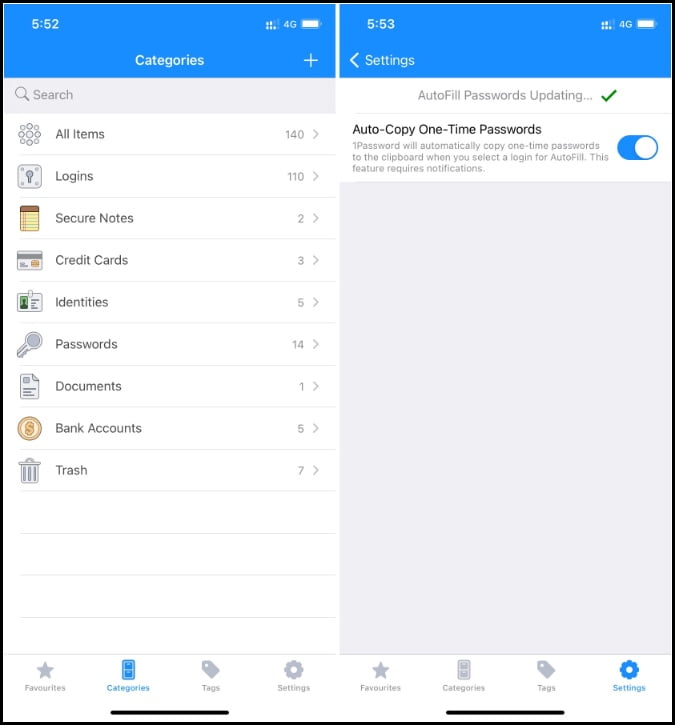It’s 2021, and it’s a pastime for everyone to invest in a password manager to make logging into hundreds of apps and services a breeze. The default settings from Apple, Google, and Microsoft are used by the majority of consumers. However, there are several third-party password managers that provide additional features for a lower price. For the most part, 1Password and Dash lane are two of my favorite password vaults among them. If you’re having trouble deciding between the two, keep reading to learn more about the Dashlane vs 1Password.
Here are some Best Password Manager for Mac.
Dashlane vs 1Password
The comparison will take into account the user interface, cross-platform availability, features, price, sharing, mobile experience, and other factors. Let’s get this party started.
Cross-Platform Availability
Let’s start with the most important factor to consider when selecting a password manager: cross-platform compatibility. It’s a tie in this case. 1Password and Dashlane are both available on nearly every platform imaginable. They’re available on Android, iOS, Windows, Mac, and as a browser extension for Chrome, Edge, Firefox, and Safari.
User-Interface
Dashlane and 1Password both navigate using the usual macOS menu. On the left, you’ll find the most important options, such as password categories, password health, weak passwords, and account information. In either app, you won’t have any trouble finding selections.

In terms of aesthetics, I like Dashlane because of the translucent sidebar effect. It’s a wonderful complement to Mac OS X’s modern style.

Adding New Item
1Password will ask you to select a template, such as a login information, credit card information, or a secure message. When you choose a website to upload information to, the app will propose that you choose a difficult password that is generated at random. You have the option of using that or creating your own password.

The auto-generated passwords can also be customized and notes added to them. I wish 1Password had included a security question option when entering new website information.
Dashlane allows you to build profiles for auto-filling forms and making payments. There’s also a separate area where you may preserve a digital duplicate of critical documents and receipts from online purchases.

In a side-by-side comparison, I found Dashlane to be more efficient, and the software makes good use of the extra screen area on the desktop.
Security and Backup
Dashlane and 1Password both use military-grade AES-256-bit encryption to keep all user information safe. Dashlane, for example, backs up data on company servers.
In this regard, 1Password is adaptable. You have the option of syncing all of your data to its servers or storing it on your own Dropbox account. Biometrics are required to access the app’s details, as is always the case.

Dashlane assigns a strength rating to passwords and can generate strong passwords at the touch of a button. The Identity Dashboard and Password Health platforms can show you your overall identity protection strength.
In addition to a VPN, identity theft protection, and dark web monitoring, Dashlane offers further security features in subscription plans. Purchasing a VPN separately would have been more expensive.
1Password allows you to exchange credentials and private notes with other 1Password users and evaluates passwords based on their strength. 1Password also offers a feature called “Watchtower,” which is an all-in-one identity monitoring platform.

Features: Dashlane vs 1Password
1Password supports multiple vaults. You can build a separate vault for each family member if you are in charge of managing all the passwords at home.
There’s also a Travel Mode in 1Password. When you traverse national borders, some credentials become more vulnerable. You can mark vaults as “travel-safe” in 1Password. Only your ‘travel-safe’ vaults will be available when you activate travel mode, with the susceptible vaults disabled.
Among all the tools, Dashlane’s audit report is one of the most dependable and complete.

The technology analyses the dark web to see if your email address or other online accounts have been exposed, in addition to detecting weak and duplicate passwords.
Pricing: Dashlane vs 1Password
1Password costs $3 per month for a personal account, whereas Dashlane is slightly more expensive at $3.33 per month but includes a VPN. The 1Passowrd family package costs $5 per month and allows you to share accounts with up to five family members. Dashlane is in a similar boat, with family options starting at $5 per month.
The company also provides Teams and Business options, If you want to invest in 1Password for your entire company, similar to Apple.
A Word on Mobile Apps
Dashlane and 1Password are also available on iOS and Android, as I noted earlier. During my testing, I discovered both apps to be feature-rich, complete with all the bells and whistles.

On Android and iOS, they both allow autofill login for a seamless login experience.
Download Dashlane for Android | iOS | Windows
Download 1Password for Android | iOS | Windows
Do you know How To Password Protect Email on iPhone and iPad?
Final Remarks: Dashlane vs 1Password
In today’s world, attempting to steal a user’s identity is a common occurrence. Using a password manager, such as 1Password or Dashlane, eliminates the need to remember login credentials. If you wish to sync data with Dropbox, use 1Password. Dashlane features a superior user interface, as well as a great audit report add-on and VPN feature.
Check this out Best Password Manager Apps for Android.

3 thoughts on “Dashlane vs 1Password: Better Password Manager”